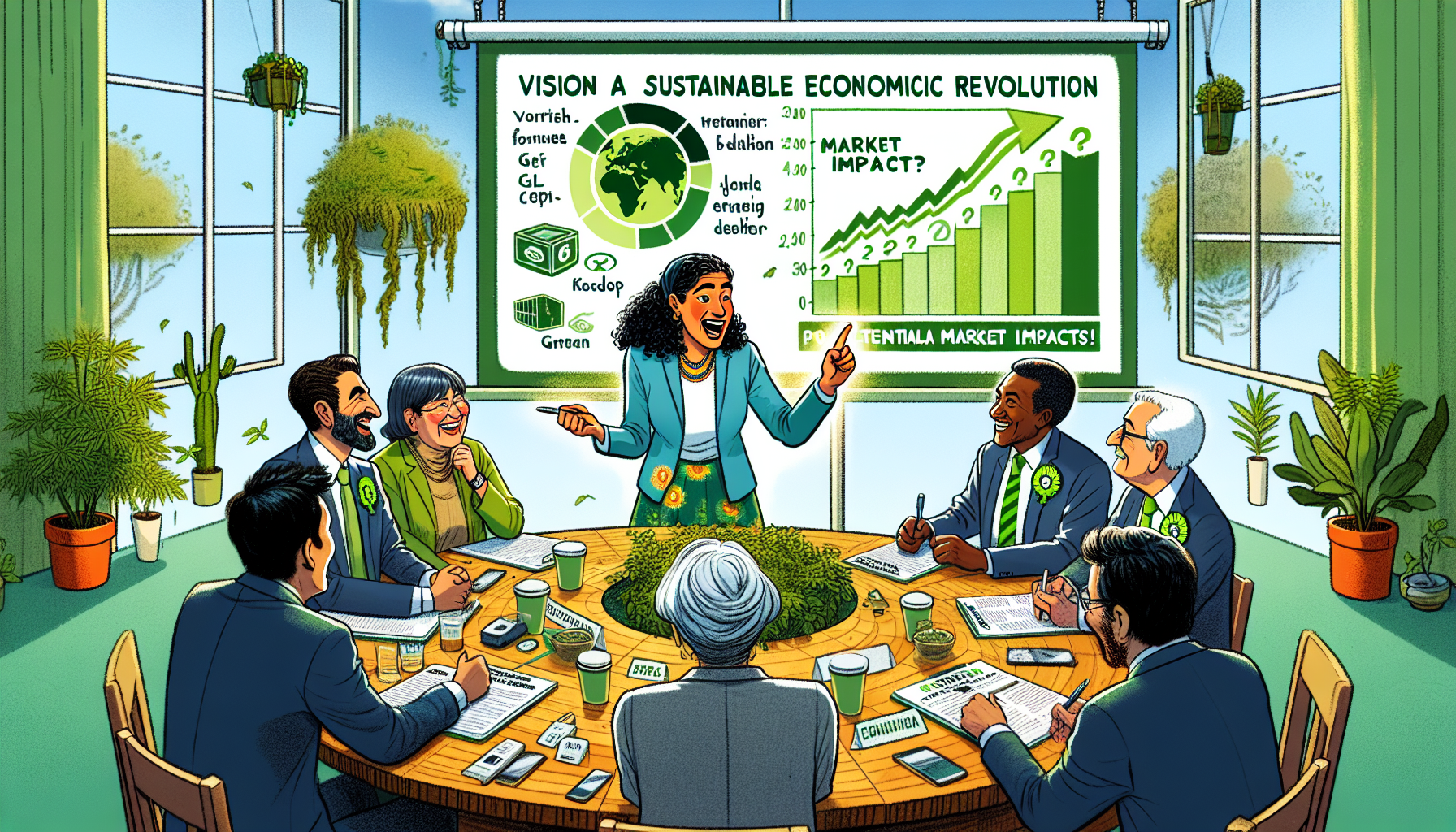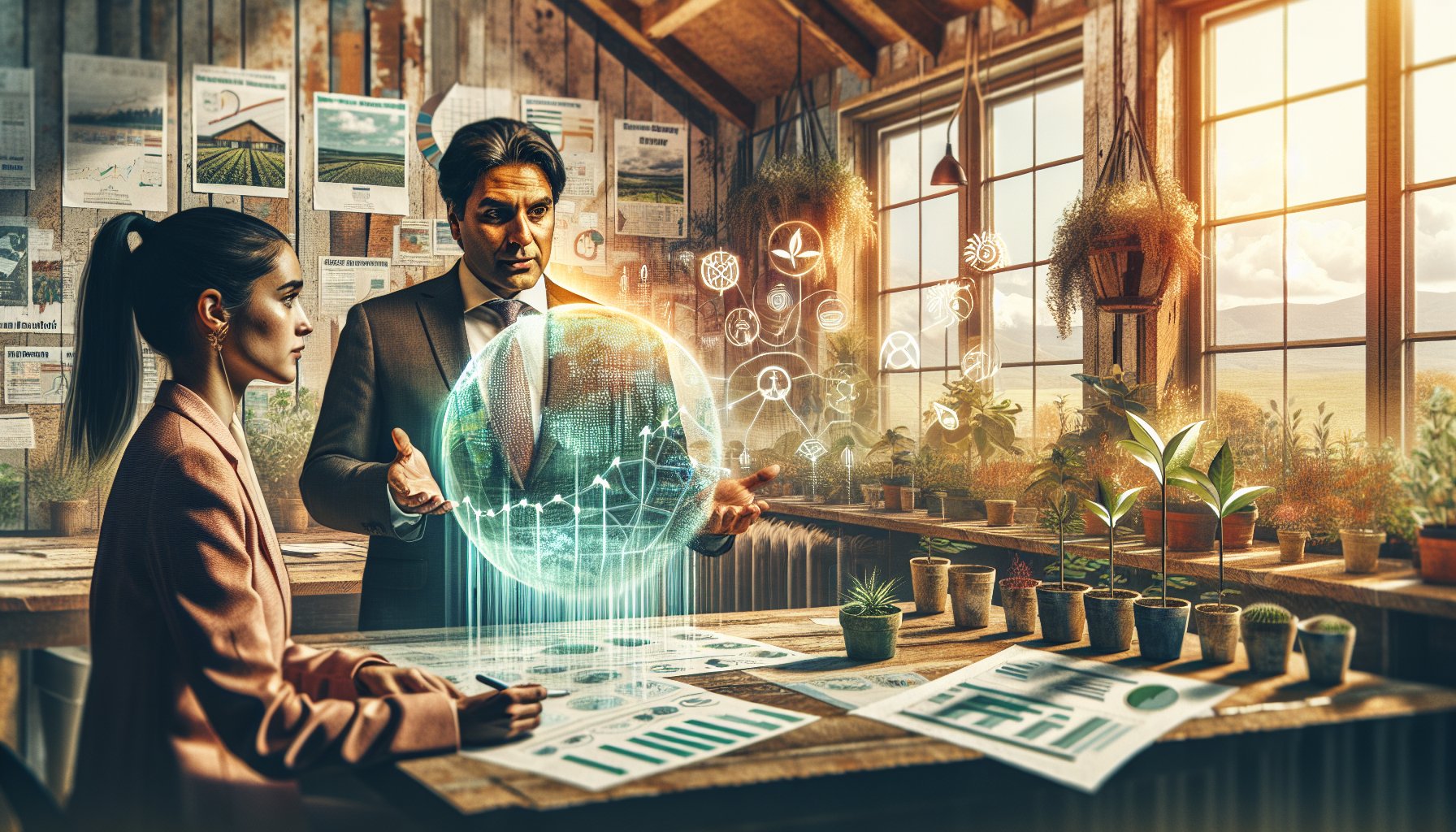The Green Economic Revolution: A Vision for Sustainable Growth
As the world grapples with climate change and economic instability, Germany’s Green Party is positioning itself as a driving force for a sustainable future. In a recent interview, co-leaders Katharina Dröge and Britta Haßelmann shared their vision for what they call the "Green Economic Miracle"—a transformative shift toward eco-friendly growth, innovation, and social equity. This article explores their strategies, challenges, and the potential impact on Germany’s political and economic landscape.
The Foundations of the Green Economic Miracle
The Green Party’s economic model is built on three core pillars: renewable energy, circular economies, and social justice. Dröge and Haßelmann argue that sustainability and prosperity are not mutually exclusive. By investing in green technologies, Germany can reduce carbon emissions while creating high-quality jobs and boosting industrial competitiveness.

Renewable Energy as the Backbone
Germany’s Energiewende (energy transition) has already made significant progress, but the Greens believe there’s more to achieve. They advocate for:
- Expanding wind and solar infrastructure
- Phasing out coal and gas subsidies
- Investing in energy storage solutions
According to Haßelmann, "The next decade will be decisive. We must accelerate the transition to avoid climate catastrophe and secure energy independence."
Overcoming Political and Economic Challenges
Despite their ambitious goals, the Greens face resistance from traditional industries and political rivals. Dröge acknowledges that transitioning to a green economy requires difficult compromises but insists that long-term benefits outweigh short-term costs.
Power Struggles Within the Coalition
Internal debates within Germany’s ruling coalition—particularly with the SPD and FDP—have slowed some green initiatives. Haßelmann emphasizes the need for unity: "We must find common ground without sacrificing our core principles."

Who Leads the Green Movement? Dröge vs. Haßelmann
When asked who the "star" of the duo is, both leaders downplayed personal rivalries. Dröge focuses on policy details, while Haßelmann excels in public engagement. Their complementary strengths, they argue, make them an effective team.
What This Means for the Market in the Coming Weeks
The Greens’ push for stricter environmental regulations and green subsidies could impact several sectors:
- Renewable Energy Stocks: Likely to rise as policy support grows.
- Automotive Industry: Pressure to accelerate EV adoption.
- Traditional Energy: Potential decline in fossil fuel investments.
Investors should monitor upcoming legislative proposals, as they could signal new opportunities or risks in the green economy.
Conclusion: A Turning Point for Germany and Beyond
The Green Party’s vision represents a bold reimagining of economic growth—one that prioritizes sustainability and equity. If successful, Germany could set a global benchmark for green innovation. Over the next few weeks, market reactions to proposed policies will reveal whether businesses are ready to embrace this transformation or resist change. Either way, the "Green Economic Miracle" is poised to reshape industries and investment strategies worldwide.

